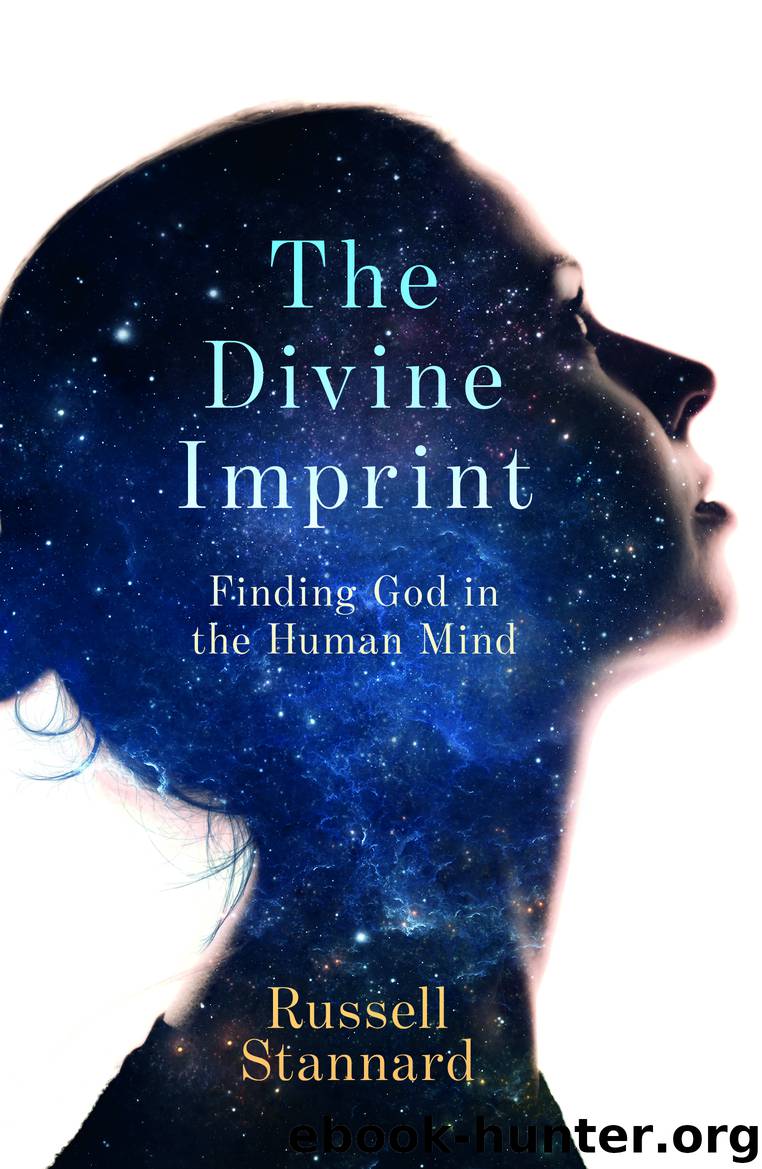The Divine Imprint by Russell Stannard

Author:Russell Stannard
Language: eng
Format: epub
Publisher: SPCK
Published: 2017-03-14T16:00:00+00:00
The mind: other approaches
Evolutionary psychology is a fairly new scientific discipline. But, of course, attempts to understand the mind date from long ago. As far back as the nineteenth century the view began to form that the thoughts of which we are aware at any time make up only part of the contents of the mind. In order to explain certain aspects of conscious experience, it became helpful to postulate an additional part of the mind: the unconscious. This was held to be capable of influencing the conscious mind through the production of dreams and hallucinations, as well as accounting for involuntary acts, such as slips of the tongue and other faulty actions.
The unconscious is a postulate: there is no incontrovertible, deductive proof of its existence. We have no way of entering and examining the unconscious directly. As soon as one thinks about a supposed aspect of the unconscious, the very act of thinking about it means that it has now been absorbed into consciousness. The existence of the unconscious can only be inferred through the way it appears to have an impact upon consciousness from outside, so to speak. For example, one has no conscious control over the contents of one’s dreams. The explanatory power of the hypothesis is so great that the existence of the unconscious is universally accepted.
In order to progress further we need to know more about the unconscious, particularly as regards what it is likely to contain. The study of the mind from the point of view of an evolutionary psychologist has proved a fruitful approach to understanding how our conscious thoughts and attitudes are moulded by an underlying architecture of the mind. But other strategies have also proved fruitful in the past. To illustrate this we look at the work of two prominent psychologists: Sigmund Freud and Carl Jung.
Sigmund Freud
Some insight into the workings of the mind is afforded by the practice of psychoanalysis as pioneered by Sigmund Freud. He held that an understanding of the unconscious begins with the recognition of two kinds of content: the id and the superego. The id is something we possess from birth. It is associated with instinctual drives towards infantile gratification. These are to be thought of as essentially sexual. The superego, on the other hand, is derived from the environment. It consists of the attitudes of mind absorbed from other people – the standards of behaviour expected by society, especially those originating from one’s parents. These beliefs are acquired in early childhood by an unconscious process that leaves one unaware of their origin. A tension is then set up between the centre of one’s consciousness, called the ego, and the value system so assimilated. From this is derived one’s ‘conscience’. Because the behaviour dictated by this set of beliefs often runs counter to that which would arise from self-gratification, the id and the superego come into conflict. This results in those thoughts regarded as shameful, painful, disagreeable or alarming being repressed into the unconscious. Although repressed, these thoughts can, nevertheless, affect behaviour.
Download
This site does not store any files on its server. We only index and link to content provided by other sites. Please contact the content providers to delete copyright contents if any and email us, we'll remove relevant links or contents immediately.
When Breath Becomes Air by Paul Kalanithi(7265)
Why We Sleep: Unlocking the Power of Sleep and Dreams by Matthew Walker(5646)
Paper Towns by Green John(4171)
The Immortal Life of Henrietta Lacks by Rebecca Skloot(3828)
The Sports Rules Book by Human Kinetics(3590)
Dynamic Alignment Through Imagery by Eric Franklin(3490)
ACSM's Complete Guide to Fitness & Health by ACSM(3470)
Kaplan MCAT Organic Chemistry Review: Created for MCAT 2015 (Kaplan Test Prep) by Kaplan(3426)
Introduction to Kinesiology by Shirl J. Hoffman(3305)
Livewired by David Eagleman(3124)
The River of Consciousness by Oliver Sacks(2995)
Alchemy and Alchemists by C. J. S. Thompson(2913)
The Death of the Heart by Elizabeth Bowen(2906)
Descartes' Error by Antonio Damasio(2735)
Bad Pharma by Ben Goldacre(2731)
Kaplan MCAT Behavioral Sciences Review: Created for MCAT 2015 (Kaplan Test Prep) by Kaplan(2493)
The Gene: An Intimate History by Siddhartha Mukherjee(2493)
The Fate of Rome: Climate, Disease, and the End of an Empire (The Princeton History of the Ancient World) by Kyle Harper(2439)
The Emperor of All Maladies: A Biography of Cancer by Siddhartha Mukherjee(2431)
